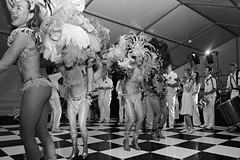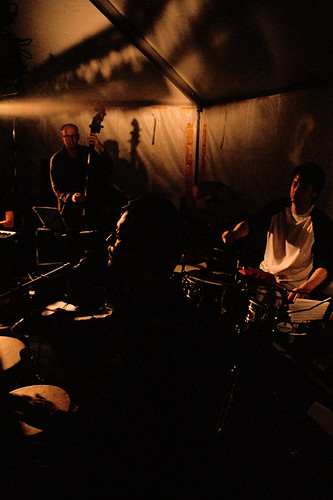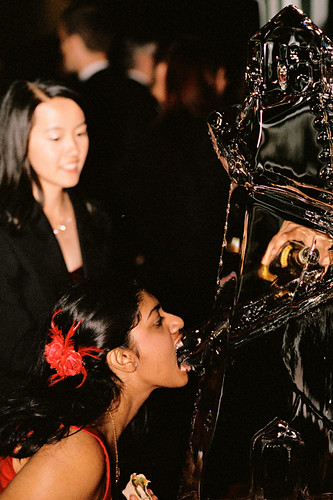 Beachy Head
Beachy Head
[click image to enlarge it]
I was eating breakfast in an hotel in Cambridge the Saturday morning after I shot that college ball. A tall, intense-looking man with a beard sat down at a table nearby. He pulled a hardback book out of his briefcase and began underlining paragraphs heavily with a soft pencil. I wanted to get up out of my chair, break the pencil, and slap him across his face with the book.
Partly, I felt this way because I was envious: he was probably there for an academic conference; I was in town to take photos. (On honest reflection, though, I enjoyed that weekend—hanging around the ball, meeting clients, reading on trains—more than I used to enjoy preparing and giving dull talks.) Mostly, the inelegance of what he was doing offended me. The man was highlighting so much of the volume that he hardly seemed to be discriminating at all. And the least bad way to mark out important paragraphs in a text is with a light, vertical line in each margin. People who read for a living know this. He was reading for show. His ostentatious “studiousness” grated on me. He was behaving like a schoolkid with his face up against open pages, trying to impress with his conspicuous concentration.
There was a deeper reason why his behaviour annoyed me. Our parents always encouraged my sister and me to look after books when we were growing up. It seems silly now that they are so abundant and cheap, but we would have book-covering evenings when we would all sit around in the living room with scissors and sticky tape and a big roll of transparent plastic and carefully encapsulate piles of them, even battered second-hand ones. We were like those immigrant families who keep the covers on their new sofas or the seats of their new cars. Come to think of it, we were an immigrant family and we did hide our black vinyl three-piece suite inside green fabric covers—and the chimney-breast in brick-effect wallpaper.
My mum taught me some good lessons, not that I paid enough attention to all of them at the time. I remember once she wrapped a copy of Wells’s The History of Mr Polly in brown paper. She was reading it on the bus on the way into work, further hidden inside a magazine. I asked her why she hadn’t used a see-through covering. She told me she didn’t want the other passengers to think she was showing off.
Later on that same Saturday in Cambridge, in one of those pasty places, I got chatting to a scientist from the Laboratory of Molecular Biology about protein bioinformatics. I’d never met him before, but struck up a conversation with him because he’d been talking to a student about something that I used to be interested in. Because he was a nice guy and a good teacher and clever enough not to feel threatened by me, he flattered me. He said (of my only interesting scientific hypothesis ever), “I like that: I’ve never thought of it that way before,” and towards the end of our conversation: “You’ve got lots of good ideas. Why aren’t you a scientist any more?”
I said (as if he needed telling), “Because no one will pay me. Sustaining a career in science isn’t about having good ideas. It’s about persuading someone to pay you to do science.”
I know enough to know that the few people who can sustain careers in what I fancied as my specialty are better than me. If what I had been talking about had fallen more completely within my new acquaintance’s area of expertise then he would have seen the weaknesses in my case. It’s easy to sit in a pie shop and outline cute physical models; it’s hard to go into a lab and accumulate enough evidence to persuade your peers of the usefulness of those models. Worse, contemporary research is different because there are too many data to absorb alone—it’s all but essential to be surrounded by good people to do great work.
No one owes me a living. Over years of falling off and getting back on the ladder I’ve learned one of the most important lessons you can learn in science and in life: unless you are independently wealthy, it’s not enough to find something you desperately want to do or even something that you think you are good at; you have to find something that someone else will give you money to do. I don’t believe that this is a bad thing. People who think it is are often sufferers from that TV talent show loser combination of spectacular incompetence and invincible self-belief. If I’d understood this properly before I went to university for the first time, perhaps back when I was sitting with my family, wrapping up books, I’d be happier now; but I have been surprisingly happy lately.
A couple of weeks back, I went to Beachy Head with a friend—not to realise a suicide pact, but because I wanted to hang out with someone nice, had had a productive morning, and needed to take my car for a run before a long drive to a wedding. It was a lovely day out. Beachy Head in the sunshine is dizzyingly pretty. This is unfortunate given the steep drop. The high ratio of continental European to British tourists suggested that it’s something of a “secret” attraction. I hadn’t even known until then that Beachy Head is next to Eastbourne, but it is.
I’d never seen so many funeral parlours, but Eastbourne has lots of young people too. On the evidence of the roadkill, though, even the seagulls go there to die. It’s a pleasant town to visit. In places it looks a bit like north-west London, but you couldn’t mistake it for anything other than an English seaside resort. It has more sand on its beach than Brighton and a relaxed elegance about its front.
At the end of this month, it will have been two years since the Rosalind Franklin Centre for Genomics Research (formerly the Human Genome Mapping Project Resource Centre) closed down, over a year since I became self-employed. I haven’t had to dip into my redundancy money since the start of 2007. I’m making a living.
For much of the time since I lost my job I’ve been bloody miserable, but I’ve tried not to bore my friends and readers too much with my terrible moods. In a time of personal disappointment, PooterGeek has been one thing of my own making that has been consistently successful. It would have failed if I’d filled its pages with self pity. As I sat on the beach eating fish-and-chips with my writerly friend, discussing books in the slightly manic way you can with a fellow fetishist—who also happens to have two degrees more in English than you have—I wasn’t quite so anxious about my circumstances. The frequency with which I’ve felt that good has increased recently. Thank you to everyone who has helped me to get this far. Thank you to everyone who has put up with my absences.
Nothing material has changed over these past few weeks. I’ve not achieved anything new. I’m not seeing anyone new. I’ve not moved anywhere new. It’s just that I’ve felt more comfortable with my not being who I wanted to be since before that photo over there → was taken. But I still feel uncomfortable sitting near pretentious twits who scrawl all over books. I should get over myself.















Recent Comments